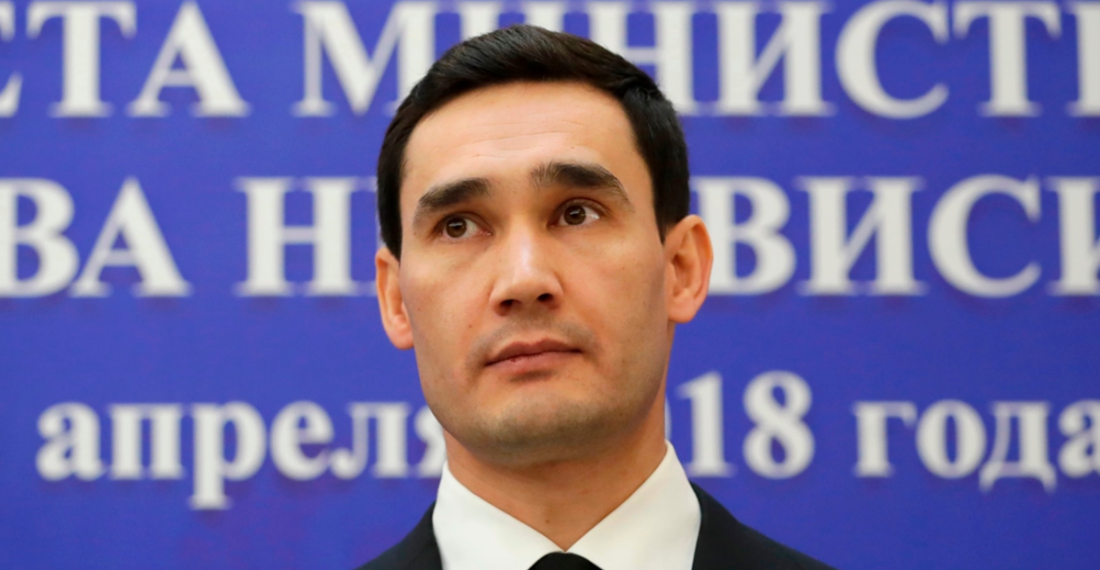Turkmenistan’s President, Gurbanguly Berdymukhamedov, who succeeded "Turkmenbashi" Saparmurav Niyazov in 2007, announced last week that he is preparing to step down two years before the end of his current term. The Democratic Party voted unanimously on 14 February to nominate the current president’s son, Serdar Berdymukhamedov, for the upcoming snap election slated for 12 March, all but ensuring he will become the next President of Turkmenistan.
The incumbent leader, famed for acts like shooting guns while on a bicycle, performing doughnuts in a car meters from a volcanic crater, and horse-riding, is reportedly unwell. Ruslan Myatiev, editor of Turkmen news, said “[Gurbanguly] Berdymukhamedov, despite being shown on TV energetic and physically fit, is ill.”
On 11 February, in a session of the upper house of Turkmenistan’s parliament, the current president, known as “the protector”, stated that he had made a “tough decision” and that it was time to give way to “young leaders”. The next day, Bezirgen Karaev, assistant to the chairman of the Turkmen Central Election Commission, told RIA Novosti that an early election had been scheduled for 12 March.
40-year-old Serdar Berdymukhamedov, the nominee for the Democratic Party of Turkmenistan, has quickly become one of the most powerful men in Turkmenistan. After studying at the Russian Foreign Ministry’s Diplomatic Academy from 2008-11 while working at the Turkmen embassy in Moscow, the “President-in-waiting” has taken on a series of jobs such as a senior role in the agency responsible for administering the country’s energy resources, head of the Foreign Ministry’s information department, and member of parliament. More recently, he was elected as deputy foreign minister and subsequently made deputy governor of the Ahal province in January 2019 until his promotion to governor five months later. He assumed his current position as Deputy Prime Minister in February 2021. Furthermore, he holds a seat on the State Security Council and is chair of the Supreme Control Chamber.
Turkmenistan is nominally a secular democracy, but has never had an election deemed to have been free and fair by international standards, including those of the OSCE, of which it is a member. The Democratic Party won 97% of the votes at the previous presidential election and the country ranks 161st out of 167 countries in the Economist Intelligence Unit's Democracy Index 2021 survey. Serdar Berdymukhamedov is therefore unlikely to face any significant opposition to him being elected as the next president of Turkmenistan.
Turkmenistan has an official status as a neutral country, which has also been acknowledged by the United Nations. Although considered isolated from many mainstream international processes it has recently sought to strengthen ties with a number of neighbouring countries, particularly in the economic sphere.







